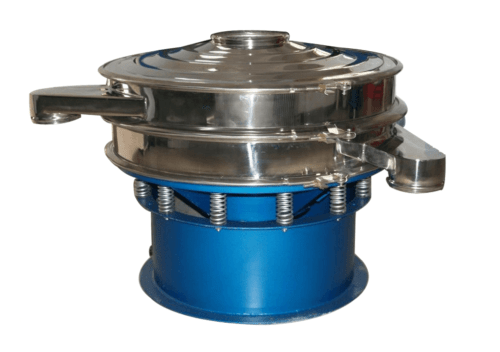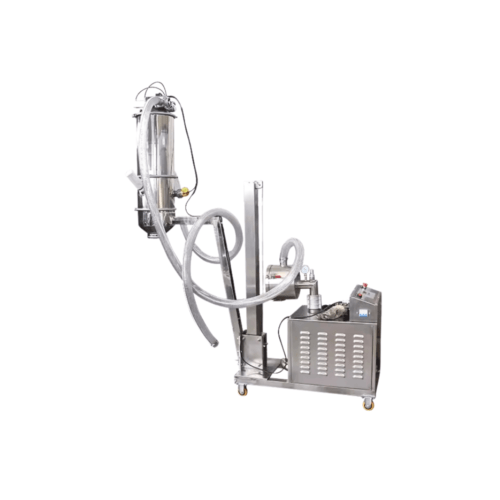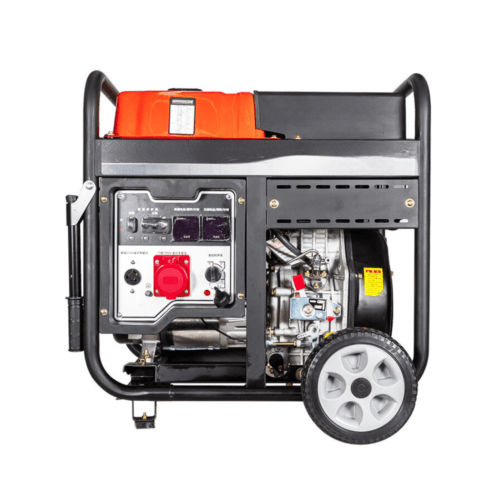How to Choose the Right Screening Equipment for Resin Powder
Choosing the right screening equipment for resin powder is a crucial decision that impacts the efficiency, quality, and cost-effectiveness of production processes. The diverse characteristics of resin powders, combined with the variety of screening technologies available, require a detailed understanding of each option. This article provides an in-depth exploration of how to select the ideal screening equipment, tailored to the specific needs of resin powder applications.

Understanding Resin Powder Screening Requirements
Characteristics of Resin Powder and Its Screening Needs
Resin powder, often used in industries like coatings, adhesives, and plastics, exhibits unique properties that make its screening process distinct. The material typically consists of fine particles, which can vary greatly in size and density. The powder’s flowability, moisture content, and particle shape all affect how it behaves during screening. These factors must be considered when choosing equipment, as they dictate the type of screen mesh, vibration frequency, and other operational parameters needed to achieve optimal results.
Additionally, resin powders are often prone to agglomeration, meaning particles tend to clump together. This necessitates a screening system that can effectively break apart such clumps while ensuring the fine powder remains well-classified for end-use. Without the right screening technology, resin powder may not meet the desired quality or consistency, resulting in production inefficiencies and increased waste.
Common Challenges in Resin Powder Screening
Resin powders present several screening challenges, primarily due to their fine nature and tendency to form lumps. One of the most significant hurdles is achieving efficient separation of fine particles while maintaining a high throughput. Overcoming screen clogging or blinding is another critical challenge. Powder build-up on the mesh can lead to reduced flow rates, inconsistent particle size, and subpar product quality.
Moreover, controlling dust and airborne particles during the screening process is vital for worker safety and regulatory compliance, particularly in industries that handle toxic or volatile resins. Choosing the right screening equipment that minimizes such issues can improve productivity and ensure a safer work environment.

The Importance of Material Size Control in Resin Powder
The consistency of material size plays an essential role in the functionality of resin powder, especially in applications where precise uniformity is required, such as in coatings and molded components. Material size control helps maintain product quality, reduce wastage, and enhance processing efficiency. Screening equipment that offers accurate separation of material sizes ensures that the resin powder can be used in its ideal form, which is critical for downstream processing stages.
Inconsistent particle size can lead to defects in the final product, such as uneven texture in coatings or compromised strength in composite materials. Therefore, controlling particle size via effective screening is a fundamental aspect of resin powder processing.
Types of Screening Equipment for Resin Powder
Vibrating Screens: The Versatile Solution for Resin Powder
Vibrating screens are among the most widely used equipment for resin powder screening. Their simple design and effectiveness in handling a broad range of material types make them a go-to choice for many industries. Vibrating screens operate by generating a series of oscillations that cause the resin powder to move across the screen mesh. This motion enables the separation of particles based on size.
The versatility of vibrating screens lies in their adaptability to different resin powder characteristics. Whether dealing with fine powders, coarse granules, or a combination of both, vibrating screens can be tailored to suit specific needs through the adjustment of vibration frequency, amplitude, and mesh size. Their ability to handle large volumes efficiently makes them ideal for continuous production lines, where high throughput is a critical requirement.
Ultrasonic Vibrating Screens: Enhancing Precision and Efficiency
For finer resin powders, ultrasonic vibrating screens offer enhanced precision and efficiency. These systems incorporate ultrasonic waves that help reduce screen blinding and improve particle separation by increasing the rate at which fine particles pass through the mesh. Ultrasonic technology is especially effective in preventing the buildup of powder on the screen, which is a common issue when handling extremely fine materials.

By applying high-frequency sound waves to the screen, ultrasonic vibrating screens create a more uniform distribution of resin powder, resulting in finer, more consistent separation. This technology is ideal when dealing with powders that are particularly challenging to screen, such as those with a high tendency to agglomerate or have irregular shapes.
Rotary Screens vs. Linear Screens: Which is Better for Resin Powder?
Rotary and linear screens are two other common options for screening resin powder. Rotary screens are cylindrical in shape and rotate around a central axis, causing the material to move along the screen. These screens are generally suited for handling larger quantities of resin powder, especially when the powder tends to be coarser or when high throughput is essential. The cylindrical design allows for continuous processing, making it suitable for larger-scale operations.
On the other hand, linear screens feature a flat surface and use linear motion to move resin powder across the mesh. These screens are typically more efficient for finer powders or situations where precise separation of materials is needed. The choice between rotary and linear screens largely depends on the nature of the resin powder and the desired output quality. For resin powders that require high precision, linear screens tend to provide superior results, while rotary screens are better for bulk material processing.
Key Considerations When Choosing Screening Equipment
Material Properties and Their Impact on Equipment Choice
When selecting screening equipment, it is vital to consider the properties of the resin powder, such as particle size, flowability, and moisture content. For example, if the powder tends to clump together, a screening system that provides vibration and agitation, like a vibrating screen, may be necessary to break up the agglomerates.
Additionally, the density and shape of the particles play a significant role in determining the screen mesh size and vibration settings. Irregularly shaped particles may require specialized mesh configurations to achieve optimal separation. A thorough understanding of these material characteristics will guide the selection of the most suitable screening equipment.

Screening Efficiency: Maximizing Throughput and Accuracy
Screening efficiency is a critical factor when selecting equipment. Achieving high throughput while maintaining accurate material separation ensures that production processes run smoothly and cost-effectively. Efficient screening reduces downtime, minimizes waste, and increases overall production capacity.
To maximize screening efficiency, equipment should be selected based on its ability to handle the required material volume while delivering precise sizing. Factors such as screen surface area, mesh size, and vibration intensity all influence the overall performance and should be optimized based on the material’s specific needs.
Maintenance and Longevity of Screening Equipment
Maintenance requirements and the longevity of screening equipment should not be overlooked. Resin powders, especially those with high moisture content or sticky properties, can accelerate wear and tear on screening machinery. Selecting equipment that is easy to maintain and durable can save significant time and money in the long run.
Equipment with self-cleaning mechanisms, such as ultrasonic vibrating screens, can reduce the frequency of maintenance by preventing clogging and ensuring consistent performance. Additionally, choosing high-quality materials for the construction of screens and components can extend the lifespan of the equipment.
Selecting the Right Size for Optimal Screening Performance
How Material Size Affects Screen Selection
The size of resin powder particles is a primary consideration when selecting screening equipment. Finer materials require screens with smaller mesh sizes, while coarser powders can be handled with larger meshes. The screen mesh size directly impacts the separation efficiency and the throughput of the screening process.
Choosing the correct mesh size is essential for achieving the desired particle size distribution in the final product. Too small a mesh can lead to blockages and reduced flow, while too large a mesh can result in inadequate separation.

Ensuring Consistent Sizing for Better Product Quality
Achieving consistent sizing is crucial for maintaining the quality of resin powder. Variability in particle size can result in uneven distribution, leading to defects in the final product, such as inconsistent coatings or poor adhesion in adhesives. Screening equipment should be able to provide consistent results across production batches, ensuring that only the desired particle sizes reach the next stage of production.
Fine-Tuning Screen Mesh for Resin Powder
Fine-tuning the screen mesh is vital for optimizing resin powder processing. Adjustments to mesh size, tension, and vibration settings can help improve particle separation and prevent issues such as blinding and clogging. Regularly assessing the effectiveness of the screen mesh and making necessary adjustments can ensure that the equipment continues to perform at peak efficiency.
Conclusion: Making the Right Choice for Your Resin Powder Screening Needs
Choosing the right screening equipment for resin powder is a complex process that involves understanding material characteristics, evaluating equipment options, and considering efficiency and maintenance needs. By selecting the appropriate technology and configuring it to meet specific requirements, manufacturers can optimize production, enhance product quality, and reduce operational costs. With careful consideration, resin powder screening can become a streamlined, efficient part of the overall production process.






